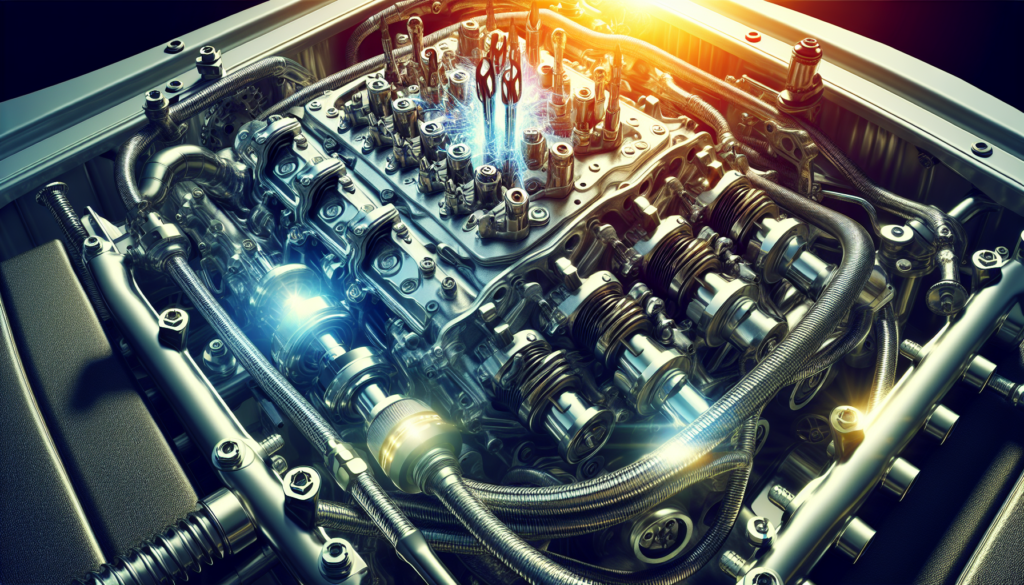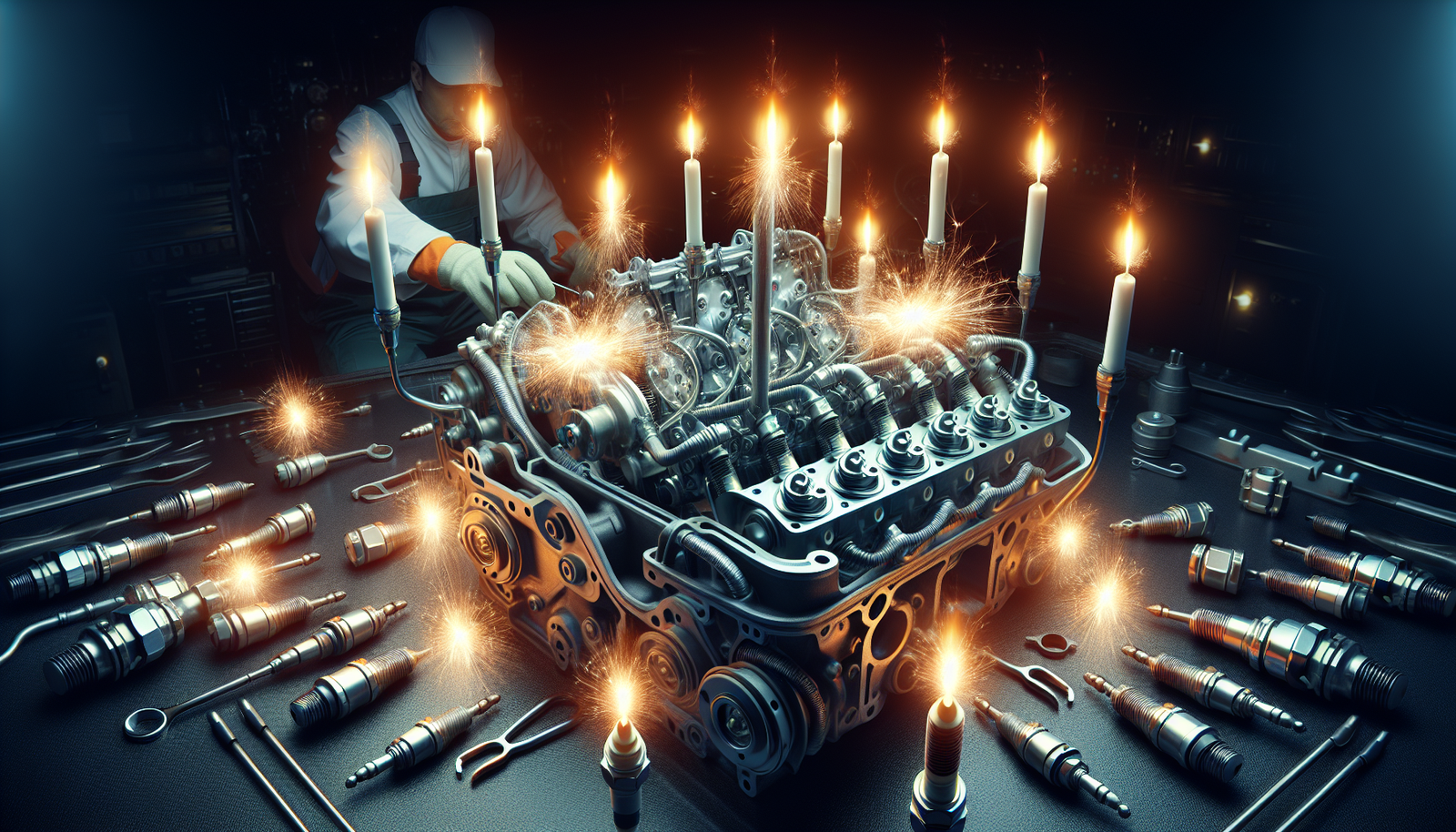Embrace your inner mechanic as you embark on the thrilling journey of understanding and solving your boat engine misfire issues. You’ll gain insights into methods of diagnosing these common problems and also learn key procedures to help you fix them like a pro. The knowledge packed into the forthcoming article, “How to Diagnose and Fix Boat Engine Misfire Issues”, promises to equip you with the necessary tools for ensuring smooth sailing ahead.

Understanding Boat Engine Misfire Issues
Boat engine misfires can be a nuisance to deal with as a lot can go wrong to cause this problem. With a little understanding of different types of misfires, their effects on boat performance, and common causes of boat engine misfire, you can better diagnose and address these issues efficiently.
Different types of misfire issues
When it comes to boat engine misfire, there are a few different issues that might arise. Some persistent and consistent misfires, while others can be random or intermittent. Persistent misfires occur constantly, while random or intermittent misfires happen unexpectedly, adding an element of unhealthy surprise to your boating adventure. Understanding the different types of misfires can help you diagnose and rectify the problem sooner, saving you both time and money in repairs.
Effects of engine misfire on boat performance
A misfiring engine can seriously impact your boat’s performance. You may notice a decrease in engine power, causing the boat to struggle while cruising or accelerating. Excessive fuel consumption and irregular engine noise are more common signs of engine misfire. In the worst-case scenario, engine misfire can lead to catastrophic engine breakdown, potentially leaving you stranded in the middle of the water.
Common causes of boat engine misfires
There can be multiple causes of boat engine misfire. Often, the problem lies with the fuel, ignition, or air intake systems. Issues with the exhaust system or engine compression can also lead to misfires. Worn out parts, such as spark plugs and ignition coils, old fuel, and neglected maintenance can further contribute to this frustrating problem.
Identifying Symptoms of Engine Misfire
Knowing the various symptoms of engine misfire can help you quickly identify and address the problem. Here’s what you need to pay attention to.
Recognizing unusual engine sounds
Your boat’s engine may produce unusual sounds, like knocking, popping, or backfiring if it’s misfiring. These noises can be a clear indication that there are issues with your boat’s engine that need to be addressed.
Loss of engine power
A dying engine is often a sign of an engine misfire. An engine misfire can cause your boat to run unevenly or lose power, disrupting your smooth sailing.
Excessive fuel consumption
Another sign of an engine misfire is excessive fuel consumption. The engine may be using up more fuel than normal due to an insufficient spark, an improper fuel/air mix, or other issues that result in incomplete combustion.
Unusual smoke from the exhaust
White, black, or blue smoke coming from the exhaust can be a sign of engine troubles. This smoke might indicate oil burning, excess fuel, or coolant leak, which can accompany engine misfire.
Difficulties in starting the engine
Facing problems while starting the engine can indicate that your boat engine is misfiring. This symptom usually suggests an issue with the ignition system, a clogged fuel system, or internal engine damage.
Preventive Measures for Boat Engine Misfire
Even though dealing with a misfire issue can be quite frustrating and costly, taking preventive measures could help you avoid dealing with this problem in the first place.
Regular servicing of the boat engine
One of the best approaches to preventing engine misfires is to regularly service your boat engine. Regular maintenance will ensure that your engine remains in good working condition, and any minor issues can be detected early and repaired before they become major problems.
Using high quality fuel
Another preventive measure involves using high-quality fuel. Low-quality or old fuel can lead to issues with the fuel system, including the carburetor and fuel pump, resulting in engine misfires. Always ensure to use high-quality fuel and avoid letting the fuel sit in the tank for too long, especially during off-seasons.
Proper storage during off-seasons
Storing your boat properly during the off-season is another important step in avoiding boat engine misfires. It involves taking care of the fuel system, disconnecting the battery, and precautions to prevent moisture buildup in the engine that can cause rust and corrosion, leading to misfires.
Replacing old and worn out parts
Routinely checking and replacing old and worn-out parts can significantly reduce the risk of engine misfires. This includes parts like spark plugs, ignition coils, distributor cap and rotor, and other components of the fuel system.

Checking for Fuel System Problems
If you are experiencing a boat engine misfire, checking the fuel system is your first step towards a solution.
Investigating the carburetor
The carburetor plays a crucial role in providing the correct mixture of fuel and air to the engine. If it’s faulty, the air-fuel mixture may be too rich or lean, leading to engine misfire.
Inspecting the fuel lines
Fuel lines carry fuel from the tank to the engine. They can become clogged over time or may leak, affecting the fuel flow and causing the engine to misfire.
Reviewing the quality and type of fuel used
As mentioned earlier, using good quality fuel is essential in maintaining your boat’s engine health. Poor quality or wrong type of fuel can lead to deposition in the engine or fuel system, resulting in misfires.
Examining the fuel pump for issues
The fuel pump supplies fuel to the engine under the correct pressure. An obstructed or faulty fuel pump can disrupt the fuel supply leading to misfires.
Inspecting the Ignition System
The ignition system is another potential source of the problem in case of a boat engine misfire.
Checking the ignition coils
The ignition coils convert the battery’s low voltage to the high voltage needed to ignite the fuel. A malfunctioning ignition coil can result in weak or no spark, causing the engine to misfire.
Evaluating the condition of spark plugs
Spark plugs ignite the air-fuel mixture in your engine. Worn-out or faulty spark plugs can hinder ignition and lead to misfires.
Investigating the distributor cap and rotor
In many boats, the distributor cap and rotor transfer the spark from the ignition coil to the spark plugs. Any crack, build-up, wear, or moisture in the distributor cap and rotor can disrupt this process and cause misfires.
Inspecting the wires and connections
Lastly, checking for any damaged wires or loose connections in your ignition system is important. A damaged wire or corridor can interrupt the spark needed for combustion and cause your engine to misfire.
Assessing the Boat’s Exhaust System
In some cases, problems in the exhaust system can also lead to engine misfires.
Looking for leaks in the exhaust manifold
The exhaust manifold carries the engine’s exhaust gases away from the engine. If there is a leak in the exhaust manifold, it can affect the engine’s performance and cause misfires.
Checking for clogs in the exhaust pipe
The exhaust pipe carries the exhaust gases away from the boat. A clogged exhaust pipe can lead to a build-up of pressure that can cause the engine to misfire.
Inspecting the condition of the exhaust gaskets
Exhaust gaskets ensure a good seal between the different parts of the exhaust manifold and the cylinder head. A faulty or blown gasket can cause leaks, leading to reduced engine performance and misfires.
Reviewing the Boat’s Air Intake System
The efficient functioning of an engine also relies heavily on a well-maintained air intake system.
Ensuring good air filtration
The air filter prevents dirt and particles from entering your engine. If it’s clogged or dirty, it can restrict the airflow, disrupting the proper air-fuel mixture leading to engine misfires.
Checking for leaks or blockages in the air intake
Leaks or blockages in the air intake can not only prevent the necessary amount of air from reaching the engine but can also affect the air pressure, again causing misfires.
Inspection of the throttle body
The throttle body controls the air that goes into the engine. A dirty or malfunctioning throttle body can affect the air supply and hence cause misfires.
Conducting Compression Tests
A compression test can help verify the condition of your engine and diagnose the cause of misfire.
Understanding how a compression test works
A compression test measures the pressure generated by the piston’s movement in the cylinder during the engine’s compression cycle. It helps recognize any cylinder that isn’t generating sufficient pressure, indicating a potential cause of misfire.
Performing a compression test on your boat engine
To perform a compression test, remove the spark plugs and insert a compression gauge into each spark plug hole, one at a time. With all other spark plugs removed, turn the engine over and watch the gauge.
Interpreting the results of a compression test
In an ideal world, each cylinder should compress the same amount of pressure. Significant variation from the average suggests a possible issue. Low compression in one or more cylinders often leads to misfires and requires professional attention.
Professional Diagnosis and Repair
Sometimes, when the misfire issue becomes too stubborn for you to handle or the problem is deep-seated, calling in a professional is the best choice.
When to bring in professional help
If you’ve inspected and ruled out all the above areas and still can’t diagnose the cause, it’s time to look into hiring a boat mechanic. This is especially true if your misfire issues come with growing severity or frequency.
What to expect during a professional diagnosis
During a professional diagnosis, a boat mechanic will do a complete inspection of your boat and its engine. They’ll use specialized tools and diagnostics systems to detect the root issue leading to engine misfire. Once detected, they will work on resolving the problem and advise on future preventive measures.
Post-repair precautions and considerations
After any repair, it’s crucial to follow any post-repair instructions from your mechanic. They might advise on what to watch out for, recommended maintenance schedules, and when to call them if an issue reoccurs.
Routine Maintenance and Aftercare
Regular routine maintenance and aftercare of your boat’s engine will go long way in ensuring the longevity of your boat’s engine and keeping engine misfire issues at bay.
Creating a regular maintenance schedule
Having a regular maintenance schedule is an important part of preventive care. This can involve changing the oil, checking and changing filters, and inspecting and replacing worn out parts promptly.
Understanding the importance of post-repair aftercare
Post-repair aftercare is as important as repair itself. Keeping your boat clean, ensuring there are no leaks, and monitoring performance can save you from major engine repairs in future.
Maximizing engine longevity
In conclusion, maximizing engine longevity comes down to vigilant care, attention to developing issues, and a commitment to preventive maintenance. Regularly servicing your boat’s engine, replacing old parts, using high-quality fuel, and addressing minor issues before they become significant can save you from the frustration of engine misfires. Remember, when in doubt, don’t hesitate to call in a professional for help!
With thorough understanding and routine inspections, detecting and fixing engine misfires could be simpler than previously thought. Here’s to smooth and enjoyable boating adventures!

